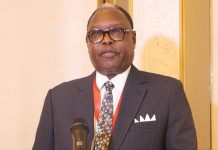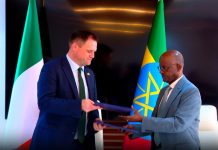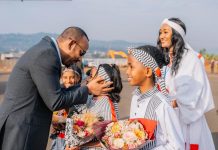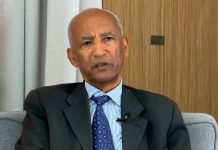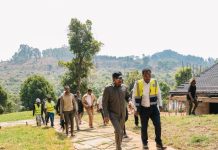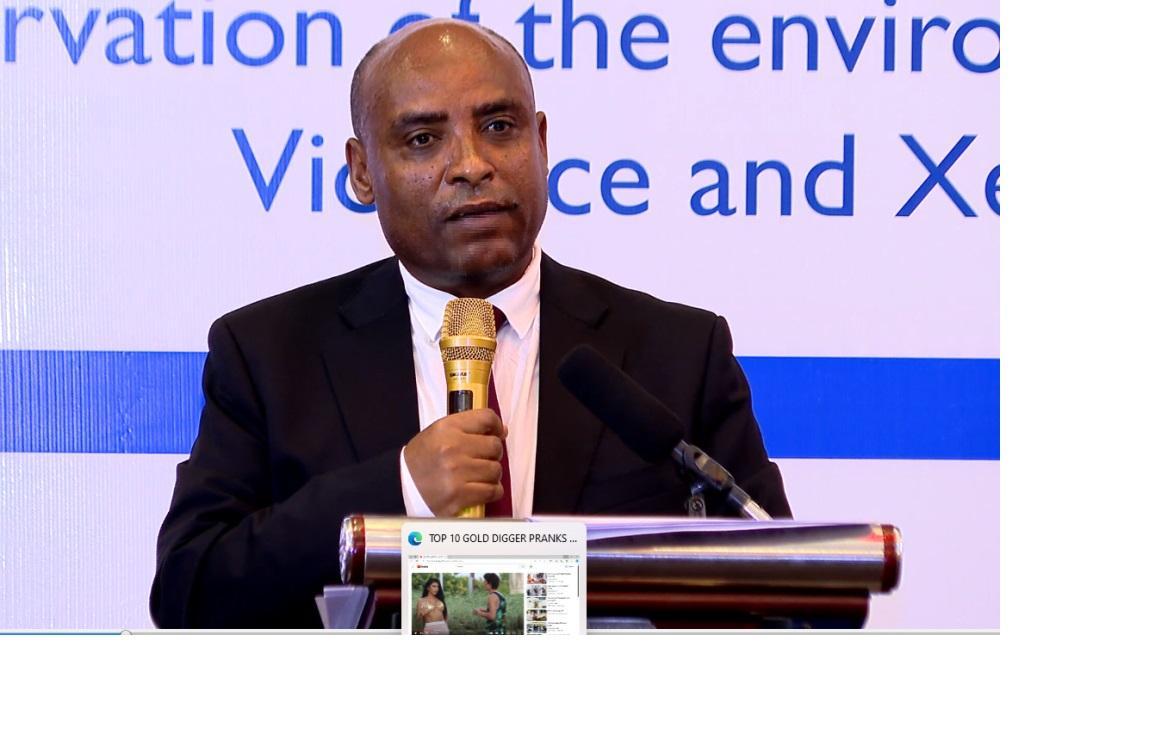
Africa-Press – Ethiopia. State Minister of Peace, Kairedin Tezera stressed the need to create a platform for religious leaders to share best practices and develop the initiative for peacebuilding and environmental stewardship.
The Second International Religious Institutions conference kicked off today in Addis Ababa.
The two-day conference brought together faith leaders and religiously linked institutions from various countries to discuss pressing issues, foster understanding and promote peaceful coexistence across the globe.
The conference aims to foster peace, human dignity, development, and preservation of the environment, and to counter hate speech, violence and xenophobia in Africa and across the world.
Speaking at the occasion, Peace State Minister Kairedin Tezera said “we stand at a crossroads. The winds of change are upon us marked by climate in crisis, yearning for societies where human dignity and rights are the cornerstone of policy and action.”
At this juncture, the work of religious fathers regarding peace building and environment protection is critical than ever, he stressed.
For generations, faith fathers have served as anchors of peace and foster dialogue, he underscored, adding that “today, this could be more urgent than ever.”
The globe is entangled with mammoth challenges such as climate crisis, displacement, conflict, and drought.
“Yet, in the middle of these challenges, there is reason for hope. Religious peacebuilding offers a powerful path forward. It is the moral authority to bridge difference, promote empathy, inspire collective action for a given legacies and secures sustainable peace,” the state minister underlined.
Faith communities have a unique capacity to speak to the hearts and minds of people, fostering understanding and cooperation regardless of ethnic and cultural identities.
Therefore, he underlined “ Let us create a platform for religious leaders to share best practices, extensive knowledge and develop the initiative for peace building and environmental stewardship.”
We have witnessed the transformative power of religion in peacebuilding, he noted, adding the Ministry of Peace has taken exemplary action.
The interfaith council which has been established brings together religious leaders from diverse traditions to address human challenges, including the critical issue of environment, he said.
A Green Legacy Initiative, a nationwide tree planting program exemplifies powerful link between religious peace building and developmental action, according to the state minister.
Faith leaders have been instrumental in mobilizing communities, emphasizing the connection between a healthy environment and a peaceful society.
“This initiative not only combats deforestation, but also fosters a sense of shared purpose and collective responsibility for the future,” he underscored.
Inter-Religious Council of Ethiopia, Secretary General Kesis Tagay Tadele said on his part that the conference will provide opportunities to discussion on key issues in which religious communities have deep interest and come up with recommendation to advance this interfaith harmony and human dignity, and preservation of the environmental.
The council is committed to enhancing its partnership with different national, regional and international partner organizations to advance a culture of peace interfaith dialogue and environmental protection, he affirmed.
President of G20 Interfaith Forum Association, Professor Cole Durham on his part expressed gratitude for gathering together and celebrate central religious ideas and interfaith harmony in Ethiopia.
“We hope this time can be a time of building and strengthening relationships, as all of us work together to identify initiatives that can have significant practical effects. We seek not only ideas, but ideas with impact,” the professor noted.
As G20 interfaith leaders, we are conscious of a number of priority areas that are already emerging, noting broader engagement with emerging food prices, pursuing successful programs on climate and other environmental concerns, he elaborated
“We need not only to identify specific policy priorities, but in addition, it is vital to help global leaders understand that engagement with faith communities is itself an essential priority that holds the key to furthering countless other objectives.”
Regional Director of United Religious Initiative for Africa, Mussie Hailu said religious leaders have been playing a crucial role in peacebuilding and achievement the Agenda 2063 of Africa and of Sustainable Development Goals.
“In this divided and conflict torn world, we cannot remain as we are. Why can we go back to condition that are now behind us? We need to move forward in a new direction for us to live in peace without marginalizing and destroy environment,” he underlined.
Moreover, he argued that we need to be responsible global citizens and play our part, to our best ability in building the peace we want to see in the world.
For More News And Analysis About Ethiopia Follow Africa-Press

